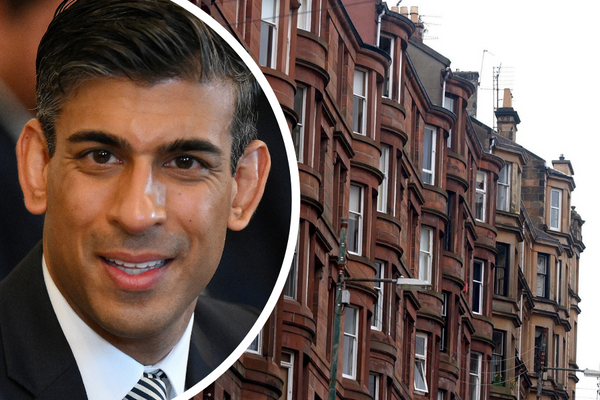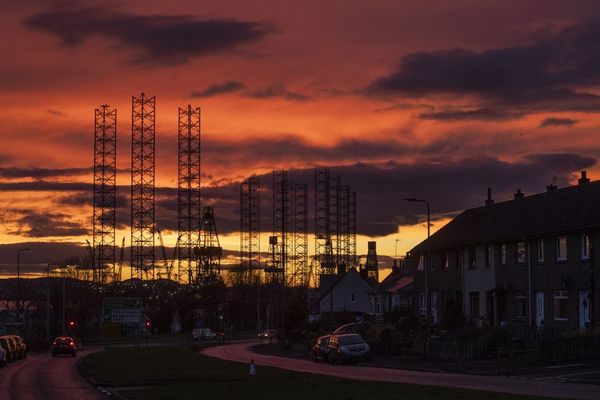
Billions of pounds given away in a tax break for UK oil and gas exploitation could have permanently cut the energy bills of 2m homes by £342 a year if invested in insulation measures, according to a green thinktank.
Rishi Sunak announced the 91% tax break alongside a windfall tax on the huge profits of oil and gas companies last week. The E3G thinktank calculated that the tax break would hand between £2.5bn and £5.7bn back to the oil companies over three years, while an energy efficiency programme of £3bn over the same period would upgrade 2.1m homes making them less reliant on gas.
Soaring international gas prices are expected to more than double energy bills in a year by October, pushing a third of households into fuel poverty. Proponents of energy efficiency, including loft and wall insulation, say it is a no-regrets investment that cuts bills for good, slashes the carbon emissions driving the climate crisis and boosts jobs. Green groups said the chancellor’s grants to households partly funded by the windfall tax were only a “sticking plaster”.
Another report published on Tuesday by the Tony Blair Institute for Global Change (TBI) found that a £4bn annual investment in energy efficiency could permanently halve heating bills for households by 2035. Its author said Sunak was handing out “raincoats” but “failing to fix the roof”.
The tax reduction meets official definitions of a fossil fuel subsidy, which the UK and other countries had pledged to phase out. It incentivises new oil and gas production, despite a recent Guardian investigation finding that the fossil fuel industry is already planning projects that would blow the world’s chances of maintaining a liveable climate.
Euan Graham, at E3G, who conducted the tax break analysis, said: “[Sunak] is providing a subsidy to oil and gas producers which will do long-term harm to the energy transition. The government has not grasped what is needed in order to deliver a genuinely resilient and affordable energy system. Instead, it is willing to implement policies that support the interests of oil and gas companies instead of British households.”
Ministers argue that more UK oil and gas supply would increase future energy security, but the fuels are owned by the companies and mostly exported.
The tax break has also been criticised by the Institute of Fiscal Studies (IFS). “[It means] a massively loss-making investment could still be profitable after tax. It is hard to see why the government should provide such huge tax subsidies and thereby incentivise even economically unviable projects,” said Stuart Adam at the IFS.
The E3G analysis used investment estimates from the industry and data from an insulation plan backed by energy companies and groups. The £342 a year savings in upgraded homes is based on the bills expected in October. The new tax break meets the World Trade Organization and International Monetary Fund definitions of a subsidy, as well as a new UK legal definition.
The TBI report advocates the setting up of an independent “home energy service”, which would provide every home with a simple, practical plan to reduce their bills and decarbonise, along with interest-free loans. It said a 10-year plan would save bill payers a total of £100bn compared to current prices and that similar approaches in Germany and Scotland were already driving down bills.
“Short-term support, such as the measures announced last week are important, but by spending a fraction of that amount per year [Sunak] could cut heating bills in two over the coming decade and insulate the UK from future economic shocks,” said Daniel Newport at TBI. “He is currently handing out much-needed – but very expensive – raincoats. Now we need to fix the roof.”
Sam Hall, director of the Conservative Environment Network, which is supported by more than 100 Tory MPs said: “It was disappointing that the chancellor announced no new measures to help people upgrade the nearly 19m poorly insulated households across the UK.” A green homes grant scheme for England was scrapped in March 2021 and judged a “slam dunk fail” by parliament’s public accounts committee, having only upgraded about 47,500 homes out of the 600,000 originally planned.
The Department for Business, Energy and Industrial Strategy was contacted for comment.










